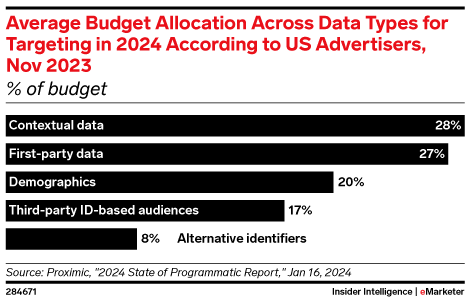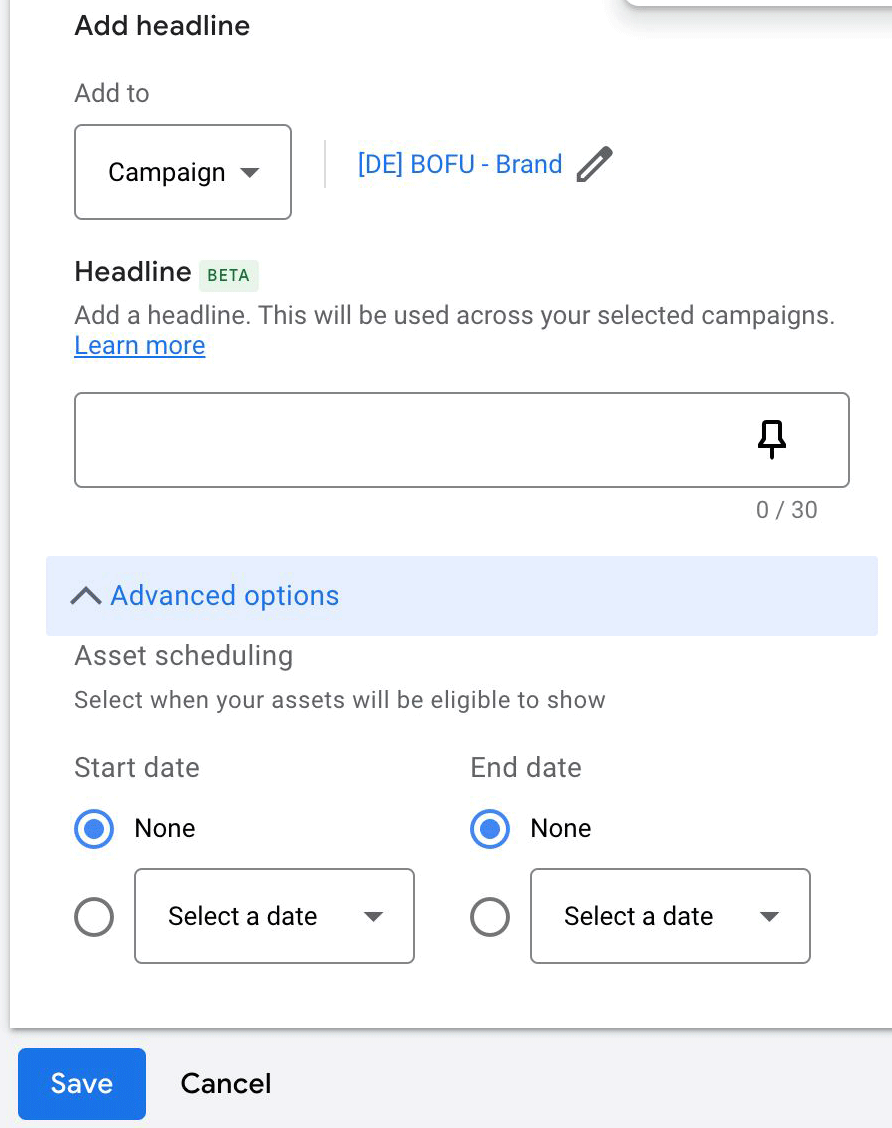- Event = measure specific interactions or occurrences on your website or app
- Key Event = measure an event that you mark as important to your business
- Conversion = measure performance of your ad campaigns and optimize bidding
- Scaled content abuse (aka made by AI)
- Site reputation abuse (junk third-party content on quality sites)
- Expired domain abuse (grabbing an expired domain and starting a spam farm)
- The Reports section provides insights into how users engage with your websites and apps so you can improve your product and user experience.
- The Advertising section will become the hub to monitor and analyze your campaigns whether you’re a publisher or an advertiser.
- Single headline responsive search ads
- Changes to account-level automated assets
Saturday Bits & Bytes | 032324
Marilynne Robinson on Biblical Interpretation, Calvinist Thought, and Religion in America (Ep. 207)
On the continuing denigration of John Calvin:
The cure, of course, is to read Calvin, which no one does, and the reason no one does is because they think they know what they’ll find. It’s very self-perpetuating from that point of view when a negative reputation is established.
Once you get a reputation it is hard to shake. And you’re rarely in control of the reputation you get.
This is especially true if you’re challenging the status quo.
5 charts on how third-party cookie deprecation will change ad buys

AI will turbocharge contextual targeting of all kinds.
Demographics are dead (& generations are garbage).
Microsoft Buying Ads On Google Search To Drive More Searches On Bing
When you click on the ad in Google Search, you are taken to the Bing Search results for that query.
I kind of love this strategy.
TikTok’s algorithm has always been a black box. But researchers are finally figuring it out
According to the study’s findings, between 30% and 50% of the first 1,000 videos TikTok users encounter are exploiting their past interests. Recommended videos are driven by a number of factors, most importantly whether the user liked a similar video, as well as who they follow on the platform. Fewer seem to be driven by the percentage of the video a user watched.
…
different users have very different experiences and/or are sort of treated differently by the algorithm
The algorithm is evolving. The importance of watch time may be diminishing as the pool of data deepens.
The one constant with any of the platform algorithms is that they change.
Spotify Is Launching New Ad Studio Product
Powered by a model which analyzes behavioral signals, Podcast Streams takes campaigns beyond standard targeting to reach engaged audiences who are more likely to listen to podcasts.
Limited to podcasts…for now?
I expect to see more targeting options like this across platforms as AI becomes further ingrained.
Post by @dsqtView on Threads
Friday Bits & Bytes | 032224
Evolving Google Analytics for more insightful measurement
To make it easier to compare these actions across platforms, we are aligning how conversions are defined across Google Ads and Analytics to give you a consistent view of your Google advertising performance. With that, we are introducing key events in Google Analytics that will replace what currently exists as conversions for behavioral analytics.
Say what? A “conversion” in GA4 was not measured the same as a “conversion” in Google Ads, which is…confusing.
Now (or soon, it’s still rolling out) in GA4, what had been called “conversions” are now “key events”. Conversions will appear in the Advertising reports section and match what is in Google Ads.
From Google:
If you want to know more, this video is the best resource on it I’ve seen from Google so far.
How to write a landing page that converts
Purchase Rate = Desire - (Labor + Confusion)
To increase the purchase rate, increase the visitor’s desire to purchase while decreasing their labor (effort) and confusion
translate features into the value they’ll get from using it. And proactively handle any objections they might have.
Provide no-brainer value and make it easy.
Copywriting Friday: What part of France are you from?
To increase conversions, we need to understand and remove the objections that are stopping qualified prospects.
…
Look for these three types of objections: obvious, embarrassing, and assumed. Then use your best salespeople to help you craft the strongest counter-objections.
Think about your services or processes: Which of them might you combine into a named system that implies the work is being done for your customer?
I’m looking forward to using the “Objection/Counter-Objection” method in a project soon.
Concrete language boosts sales.
from the Nudge newsletter

Specific, tangible language significantly increases customer satisfaction and spending.
Use clear, concrete language.
Easy to understand. Hard to confuse.
February Marks a Turnaround for Existing Home Sales
Sick of waiting for the Federal Reserve to make a move, home buyers and sellers seem to be accepting the market for what it is.
…
In February, contracts closed on roughly 4.4 million existing homes, an increase of 9.5% from the month prior
The median existing-home sales price elevated to $384,500, the eighth consecutive month of year-over-year price gains. However, the sales prices across all US homes jumped only 0.6% from January to February, which resembles pre-pandemic trends
Changes in the housing market can have far reaching ripples.
Are the algorithms starting to turn on generative AI?
Google has updated Search to derank spam including:
The goal is to:
better understand if webpages are unhelpful, have a poor user experience or feel like they were created for search engines instead of people. This could include sites created primarily to match very specific search queries.
This change actually has teeth too, with plenty of manual actions.
Another Podcast’s episode Google Gemini and AI bias unpacks the weights and training data stuff I briefly mentioned yesterday.
Hidden patterns in data and models as bias amplifiers.
Also the excellent quote “the fake is in the caption,” because what is a prompt but a caption for a future image?
Quick Hit Google Bits
Google Analytics 4 launches new trend detection insight
trend change detection focuses on slower changes happening over a longer time. This gives users a detailed view of data changes, making it a useful tool to spot both quick and long-term trends.
Reddit signs AI content licensing deal with Google
reportedly paying Reddit $60 million per year to train its artificial intelligence models (e.g., Gemini).
OG journo-blogger Matt Welch on legacy media, like the Village Voice & LA Times:
Never could adapt to the new reality. It’s a success curse.
When you’re making that much money, you’re that powerful, the people who work for you—including yourselves—are not going to solve the industry once the industry turns and changes.
This is not just a media problem.
Same could be said of Google right now.
How do you change when the change threatens your business model?
Walmart is in talks to acquire Vizio, which sells a popular line of value-priced smart TVs that include an ad-supported free streaming service
which
could make Walmart a significant player in the connected-TV advertising business, competing with the likes of Roku, Amazon and Google/YouTube
via Variety
When users say “platform,” we mean software (increasingly cloud-based).
When platforms say “platform,” they mean hardware.
Every major ad platform wants a hardware platform of their own. For that sweet, sweet first-party data & to not be beholden to someone else (especially a competitor).
I’m turning into a Google bear 🐻
Competition from OpenAI: Develops Web Search Product in Challenge to Google
Arc Search getting buzz (I’ve used it & can easily see this being a glimpse of search’s future)
Earlier this month I asked if Google was now Microsoft.
Magic 8 ball says “Signs point to yes” 🎱
via Inside:
A U.S. federal judge has scheduled an antitrust trial against Google for Sept. 9, 2024. The U.S. Department of Justice (DOJ) lawsuit targets the search giant’s alleged monopoly over online advertising.
If, like Microsoft, Big G limits/unwinds development to avoid more antitrust actions, we may have seen the last of Google as portal to the Internet.
& yes, it’s an existing trend that is accelerating.
& yes, Microsoft pulled a phoenix so it’s not necessarily The End.
The cookie has crumbled and the replacement isn’t out of the oven yet. At least in the short term, ad platforms are turning to Enhanced Conversions.
A Google rep recommended this to me to avoid losing signal after Chrome sunsets them for good this summer.
From Microsoft:
With Enhanced conversions, you can supplement existing conversion measurements by using privacy-safe customer first-party data, such as email and phone number.
Seemed like Google wanted to be a platform for everything you might need to do on the web. (Which meant more vectors for data collection to fuel the revenue generator: ads.)
Now it is starting to replace Big G products with third-party integrations (Search cache, A/B testing).
Is it now Microsoft?
Google Search’s cache links are officially being retired
Google claims it’s less necessary now that internet reliability has improved.
Google is a cloud computing company. One with a robust PR department that likes to make everything a societal positive. One that needs to find profit, fast.
How do you increase cloud capacity without increasing hardware costs? You delete a bunch of stuff taking up space. Like Search cache. Or Universal Analytics data (148 days until deletion).
What will fill this space?
I’m sure some will be whatever paying customers put there. It mostly, AI.
If you want to glimpse the future of search, don’t look to Google.
Asked: Test or beta?
Answered: Google has now rolled out campaign level headlines and descriptions.
You can now have the option to associate up to three headlines and two descriptions at the campaign level. “If you need to show these assets during a specific time period, such as a sale, you’ll be able to schedule specific start and end dates for them.
Also:
Create Google search ads, with AI!
The conversational experience enables advertisers to generate relevant ad content, including creative and keywords, from a website URL.
You may have heard the Google Ads rule of thumb that you need 30 conversions before changing your bid strategy to Maximize Conversions. That’s not entirely true.
Max conversions can work on fewer than that. Target CPA or Target ROAS on the other hand, wait for 30.
per a Google Ads rep
Test or beta? Who knows, but hopefully it’s a toy we all get.
Google is toying with campaign-level headlines and descriptions.
This is all “as seen on LinkedIn,” but looks like you can add up to 3 headlines & 2 descriptions to an entire campaign and set on-off dates. Perfect for promos.


